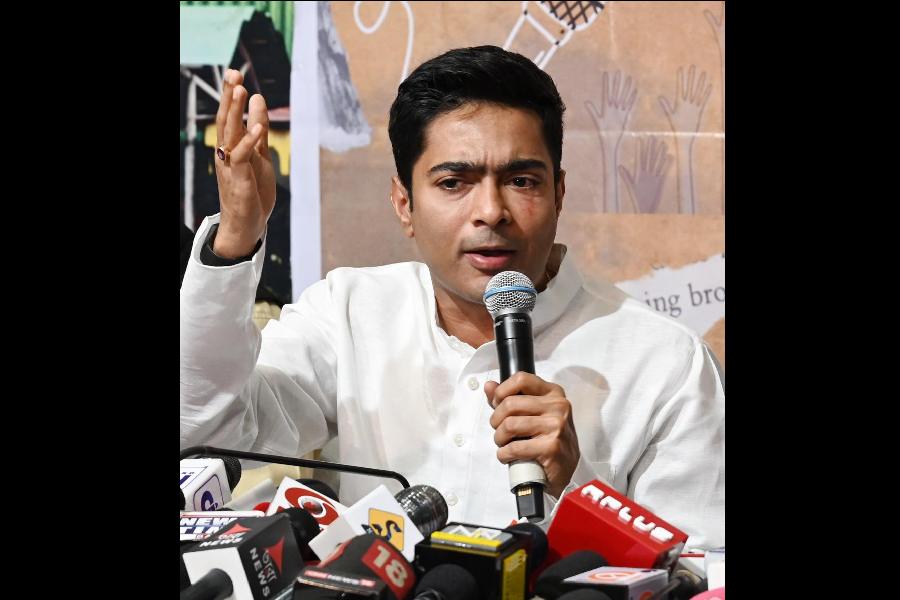A Calcutta High Court judge on Friday said the Enforcement Directorate (ED) does not have enough evidence yet to take any coercive action against Trinamul Congress leader Abhishek Banerjee in connection with the alleged corruption in school recruitments.
But the court gave the central agency the liberty to carry on with the probe and take “action” if they could collect enough evidence against him in the future.
The order, passed by the single-judge bench of Justice Tirthankar Ghosh, came as an interim relief for the Trinamul national general secretary, who has been named as an accused in the alleged irregularities in recruitment in government-aided schools.
Justice Ghosh, however, turned down Banerjee’s plea that the Enforcement Directorate’s ECIR against him be quashed.
The ECIR (Enforcement Case Information Report) is a formal entry of the complaint lodged by the ED against any person.
Justice Ghosh made it clear that Friday’s order would not prevent the investigating agency from taking action against Banerjee on the basis of fresh evidence in the future.
“At this stage of the investigation, the ED could not produce sufficient proof against Banerjee. At this stage of the investigation, the ED cannot take any coercive measures against the petitioner (Banerjee),” the judge said.
However, he allowed the ED to continue its probe.
Clarifying the order, Justice Ghosh said: “The documents submitted before the court related to the interrogation of Sujay Bhadra and seizing of files from Leaps and Bounds company is not enough for the court to allow the Enforcement Directorate to take coercive measure against Banerjee.”
The judge also made it clear that Banerjee would have to cooperate with the ED and appear before it whenever required.
Lawyers on the ED’s panel said they would move a higher bench against Justice Ghosh’s order.
Friday’s order followed a prayer by Banerjee seeking quashing of the ED’s ECIR against him.
In his petition, Banerjee said he was in “no way connected with the case” but the agencies, under the “instigation” of a particular political party, had been harassing him by issuing repeated summons.
At the time the petition was pending before Justice Ghosh, another single-bench judge of the court, Justice Amrita Sinha, had issued an order asking ED to expedite its probe against Banerjee and raid Leaps and Bounds, a company in which Banerjee is said to be the CEO.
Justice Sinha’s order followed an ED statement claiming that Sujay Bhadra, an arrested accused and a former director of Leaps and Bounds, had admitted that the money from the allegedly irregular recruitments was deposited in the company.
In response to Justice Sinha’s directive, the ED raided the company’s office and downloaded and “seized” 16 files.
When Banerjee’s counsel informed Justice Ghosh about the seizure, the judge ordered the production of these files before his court. After receiving the files, Justice Ghosh engaged the Central Forensic Science Laboratory to scan them and produce a report.
The CFSL carried out the court’s order and submitted a report. Justice Ghosh’s order on Friday was based on the report filed by the CFSL.
